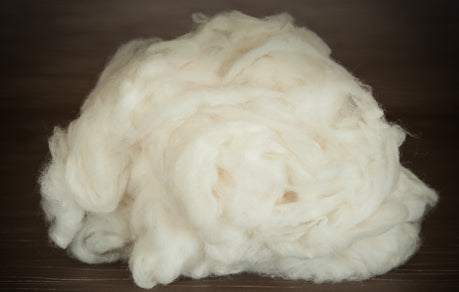Article: Merino Wool vs. Cotton: Which Is Better for Your Skin?

Merino Wool vs. Cotton: Which Is Better for Your Skin?
Merino Wool vs. Cotton: Which Is Better for Your Skin?
When it comes to choosing the right fabric for your skin, the two most common options are Merino wool and cotton. Both fabrics are popular for their comfort, but they each offer unique benefits that make them more suitable for certain skin types and conditions. In this blog, we’ll compare Merino wool and cotton to help you decide which one is better for your skin.
Understanding the Basics: Merino Wool vs. Cotton
Merino Wool is a natural fibre sourced from Merino sheep. It's well-known for its softness, warmth, breathability, and moisture-wicking properties. Unlike traditional wool, which can be itchy, Merino wool is much finer and gentler on the skin, making it a great option for those who are sensitive to rough fabrics.
Cotton, on the other hand, is a widely used natural fibre derived from the cotton plant. It's soft, breathable, and lightweight, making it an everyday fabric for casual wear. However, cotton is highly absorbent, which means it can retain moisture and sweat, making it less ideal for certain activities or skin types.
Benefits of Merino Wool for Your Skin
- Soft and Non-Irritating: Merino wool is incredibly soft and fine, which prevents the itching commonly associated with traditional wool. This makes it suitable for people with sensitive skin or conditions like eczema, as it doesn't cause irritation or discomfort.
- Temperature Regulation: One of the key benefits of Merino wool is its ability to regulate body temperature. Merino fibres trap air close to the skin, keeping you warm in winter while allowing your skin to breathe in hot weather. This temperature regulation helps prevent overheating or excessive sweating, which can lead to skin irritation.
- Moisture-Wicking Properties: Merino wool is known for its excellent moisture-wicking abilities. It draws sweat away from your skin and allows it to evaporate, keeping your skin dry and comfortable. This is especially beneficial for those who experience skin issues caused by trapped moisture, such as rashes or fungal infections.
- Antibacterial and Odor-Resistant: Merino wool naturally resists bacteria, which means it doesn’t retain odours. This makes it a great option for people with sensitive skin who want to avoid the buildup of sweat and bacteria that can lead to irritation or unpleasant smells.
- Breathable and Hypoallergenic: Merino wool is highly breathable, allowing your skin to stay cool and dry. It also has hypoallergenic properties, which means it is less likely to cause allergic reactions compared to other materials like synthetic fibres or even cotton for some individuals.
Benefits of Cotton for Your Skin
- Soft and Gentle: Cotton is known for its softness and comfort, making it a popular choice for casual wear. It’s non-abrasive and gentle on the skin, which is especially important for those with sensitive skin or allergies.
- Breathability: Like Merino wool, cotton is breathable and helps keep your skin cool in warm weather. It allows air to flow freely through the fabric, preventing excessive sweating and helping your skin stay comfortable throughout the day.
- Hypoallergenic: Cotton is naturally hypoallergenic, making it an excellent option for people with skin sensitivities or allergies. It’s unlikely to cause irritation or itching, which is why cotton is often recommended for babies and those with sensitive skin conditions.
- Easy to Care For: Cotton is easy to wash and maintain. It’s durable, resistant to wear and tear, and can be machine washed without special care. This makes cotton clothing a convenient and low-maintenance option for everyday wear.
Merino Wool vs. Cotton: Which Is Better for Your Skin?
For Sensitive Skin: Merino wool is generally the better option for people with sensitive skin. Its finer fibres are softer, less irritating, and more breathable compared to cotton. Additionally, Merino wool's moisture-wicking properties help keep the skin dry and free from the irritants that can cause rashes or discomfort.
For Hot Weather: Cotton may be the better choice for hot weather, as it's lightweight and highly breathable. However, if you’re engaging in outdoor activities or need a fabric that can regulate temperature more effectively, Merino wool is still an excellent option due to its ability to keep you cool when it's hot and warm when it's cold.
For Active Lifestyles: If you're engaging in physical activity, Merino wool has the edge due to its moisture-wicking and odour-resistant qualities. It keeps sweat off your skin and prevents the buildup of bacteria, which can lead to skin issues. Cotton, while breathable, absorbs moisture and stays damp, which can cause discomfort and irritation over time.
For Everyday Comfort: If you’re looking for comfort and ease, both fabrics can be great choices. Cotton is more widely available and easier to care for, while Merino wool provides superior skin benefits, especially in terms of temperature regulation and odour resistance.
Conclusion
Both Merino wool and cotton have their benefits when it comes to skin health, but Merino wool generally offers more advantages, particularly for sensitive skin and active lifestyles. If you’re looking for a fabric that is soft, moisture-wicking, temperature-regulating, and hypoallergenic, Merino wool is a clear winner. However, cotton remains a reliable option for comfort and breathability in warm weather or for those who prefer easy-to-care-for fabrics.
At Great Kiwi Yarns, we offer a range of Merino wool clothing that’s gentle on the skin and perfect for all-day wear. Whether you’re looking for base layers, activewear, or everyday essentials, Merino wool has got you covered!











